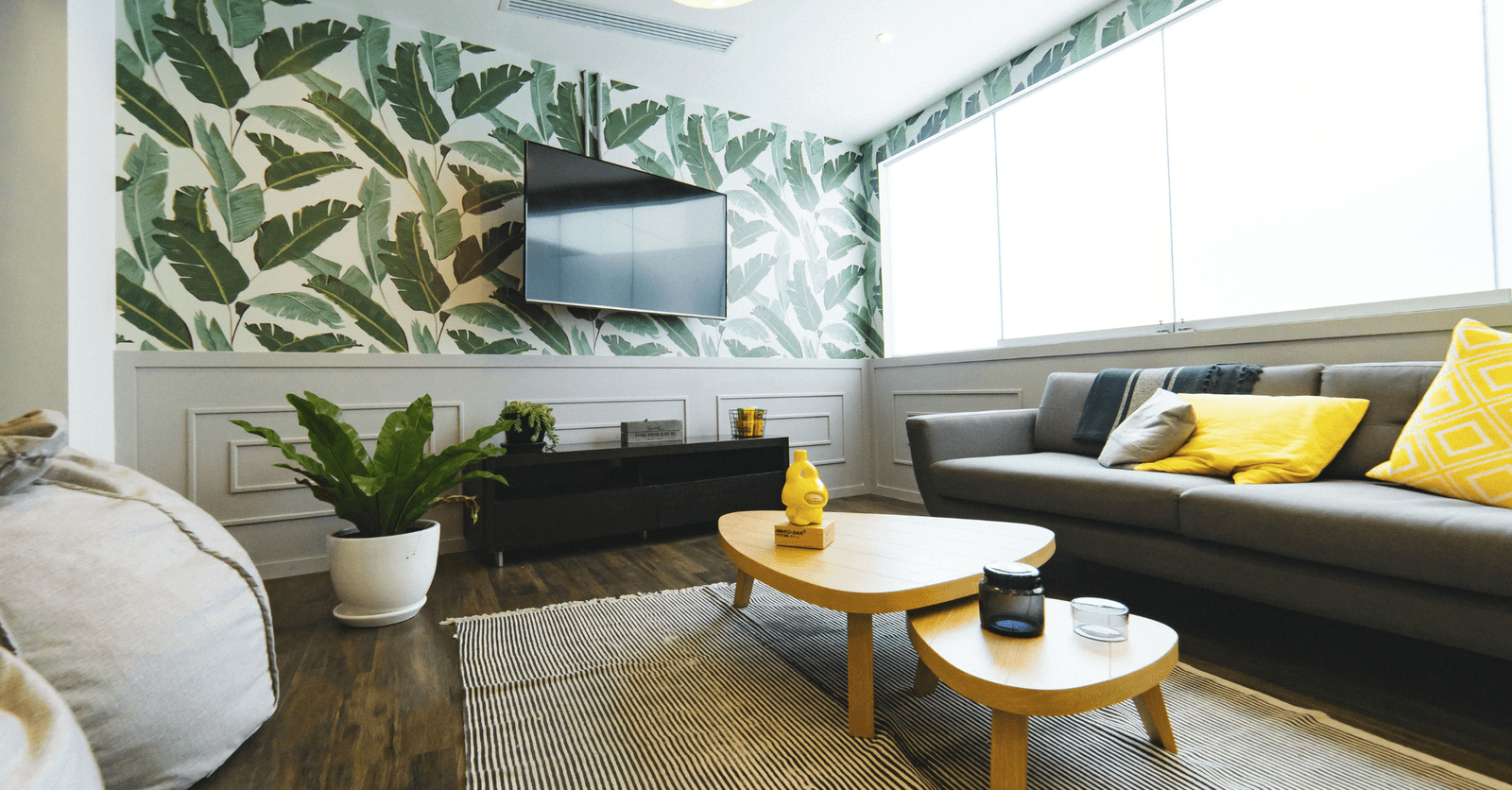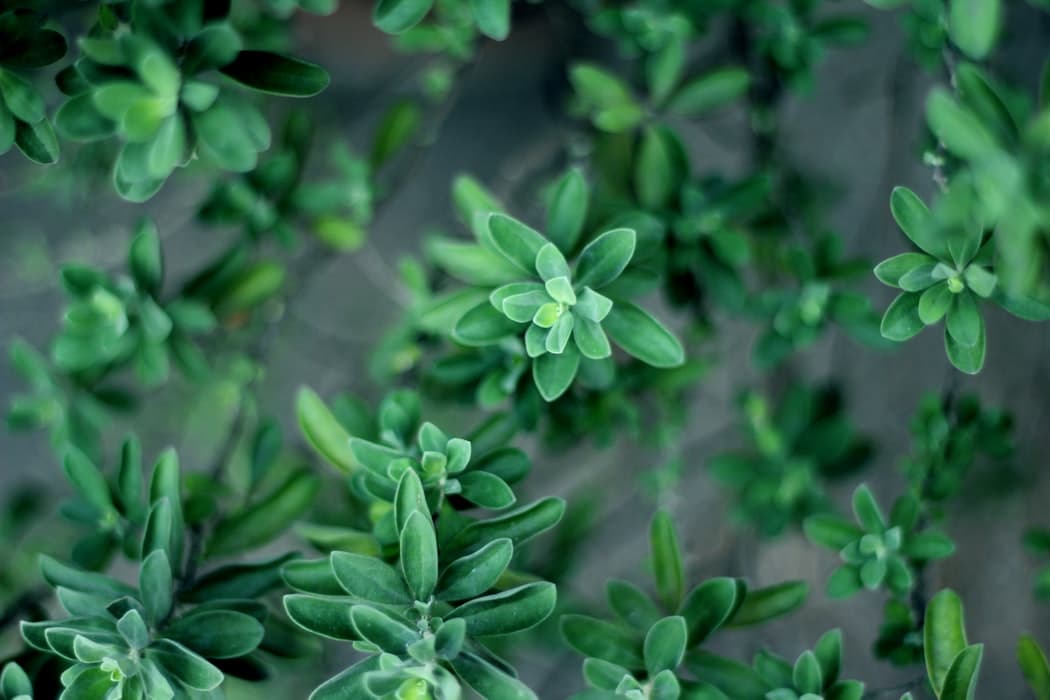How to Apply Drywall Joint Compound
By Léa Plourde-Archer
Updated on July 25, 2024

Applying drywall joint compound is an art that requires patience and meticulousness. Contrary to other types of renovation projects, this task is accessible to anyone. However, in order to ensure good results, it is important to follow certain guidelines.
The job will last at least 4 days, as three separate coats of drywall compound will have to be applied, with an 18 to 24 hour waiting period between each coat. If you are inexperienced, you will have to work more slowly to apply the product in the right way.
Preparation before applying the drywall compound

Source: Canva
Start by emptying the room where you will be working and protecting the surfaces that cannot be removed. It is also recommended that you cover the furniture in rooms nearby, as the dust has a way of spreading around.
If necessary, install metal corner beads, which will serve to unite gypsum panels that meet at the exterior corner of two wall sections (see the photo below). Be careful not to nail or screw them in too tightly, as this could cause them to warp.
Necessary equipment for drywall compound

Spatula;
Two trowels (different sizes);
Drywall tape;
Platter or any flat-surfaced object (to mix the drywall compound);
Drywall compound;
Sandpaper;
Sanding block and sponge;
Personal protection equipment (mask, gloves);
Washcloths;
Container filled with tepid water.
Steps to Apply Drywall Joint Compound

Source: Canva
The first coat of drywall
Put a little bit of the drywall compound on your platter. Next, using your trowel (the smaller one), take a bit of the drywall compound. Starting from the middle part of the joint, spread the product over the whole gap. Once you have covered the complete section, install some drywall tape.
Stretch the paper as much as possible and spread a small coat of drywall compound on top, whilst carefully pressing on the paper to create a nice homogenous surface. As you complete this part of the process, be sure to remove any extra compound that has gathered on the sides. Repeat this operation until you have covered each one of the joints. Once you have finished applying the first coat, inspect the whole area and remove any excess compound.
Photo: Flickr- Georgia National Guard
Second and third coats
Before you start working on the second coat, sand the joints very carefully, making sure not to perforate the drywall tape. For the upcoming steps, we recommend that you use a larger trowel that will serve to eliminate marks and delineations. Apply thin coats and don’t forget to clean your tools after each use.
* Notes: If the drywall joint compound is too dense, you can dilute it using a small quantity of tepid water. Be careful with air bubbles that tend to form behind the tape. If bubbles appear, the joint will have to be redone.
Sanding the surfaces
Once the last coat has had the time to dry, it’s time to work on giving these joints a nice finish. Using your sanding tools, try to even out the surfaces in order to get a nice, smooth result.
Cleaning after applying the drywall compound
After you’ve finished sanding the joints, you’ll be left with plenty of dust throughout the room. Before you start vacuuming, start the cleaning process by removing most of the dust with a broom and a wet cloth. Since the dust particles are extremely small, they may end up clogging your vacuum cleaner so it’s best to use it as little as possible. Once you’re done cleaning, you’ll be ready to start painting!
Special cases

Source: Canva
The previous instructions mostly applied to “standard” joints. However, interior wall corners don’t exactly work the same way. You’ll have to be very careful in trying to avoid drywall compound accumulation in these corners. Spread the joint compound on both sides of the corner.
Next, fold the drywall tape in two and install it in the corner, starting from the top. Press firmly, using your trowel and make sure that both sides are even. For the next two coats, follow the same instructions as written in the paragraph above. In places where there are screws, insert a bit of drywall compound directly into the holes. Press strongly to even out the product.
Get 3 renovation quotes for a drywall plastering project
RenoQuotes.com will put you in contact with 3 reliable contractors for your drywall plastering project. Fill in the form on our homepage (it only takes a few minutes), and you will receive quotes from trusted professionals.
Dial 1-844 828-1588 to speak with one of our customer service representatives
Looking for something else?
Related articles
The latest industry news, interviews, technologies, and resources.

Editorial Team
•08 Nov 2023
Homeowners are often exploring ways in which they can use sustainable or alternative methods to heat and cool their homes. It should come as no surprise that heat from the earth can be used as an alternate energy source. This energy source is referred to as geothermal, and can be found right in your backyard. Modern homes are tapping into this affordable and sustainable source, utilizing it for their heating and cooling systems. But what exactly is it?

Cynthia Pigeon
•05 Dec 2025
A common question among those renovating their bathroom is whether to opt for a bathtub or shower. While the initial focus is often on space constraints, there are other factors that come into play when making the final decision. So, what exactly are these factors? Keep reading to find out!

Editorial Team
•16 Jun 2025
Are you looking to learn more about the different types of interior wall covering materials? There are so many different options available that one can easily feel lost when faced with the idea of choosing one over another. In order to help you find the material that best suits your needs and taste, here is an overview :

Editorial Team
•08 Nov 2023
With summer weather and sunshine knocking at your door, landscaping is most likely at the forefront of your mind. Even though your goal is to make it look nice, maintenance is rarely a cause for excitement. However, plants need their share of attention, and so does your lawn.

Léa Plourde-Archer
•26 Feb 2024
Insulation is one of the key elements in terms of the level of comfort inside a home. This statement is even more true in a country where winters are harsh and summers are very hot. Indeed, even during the summer, insulation plays a major role because if the walls and other elements are poorly insulated, hot air will pass and energy expenses will be increased.